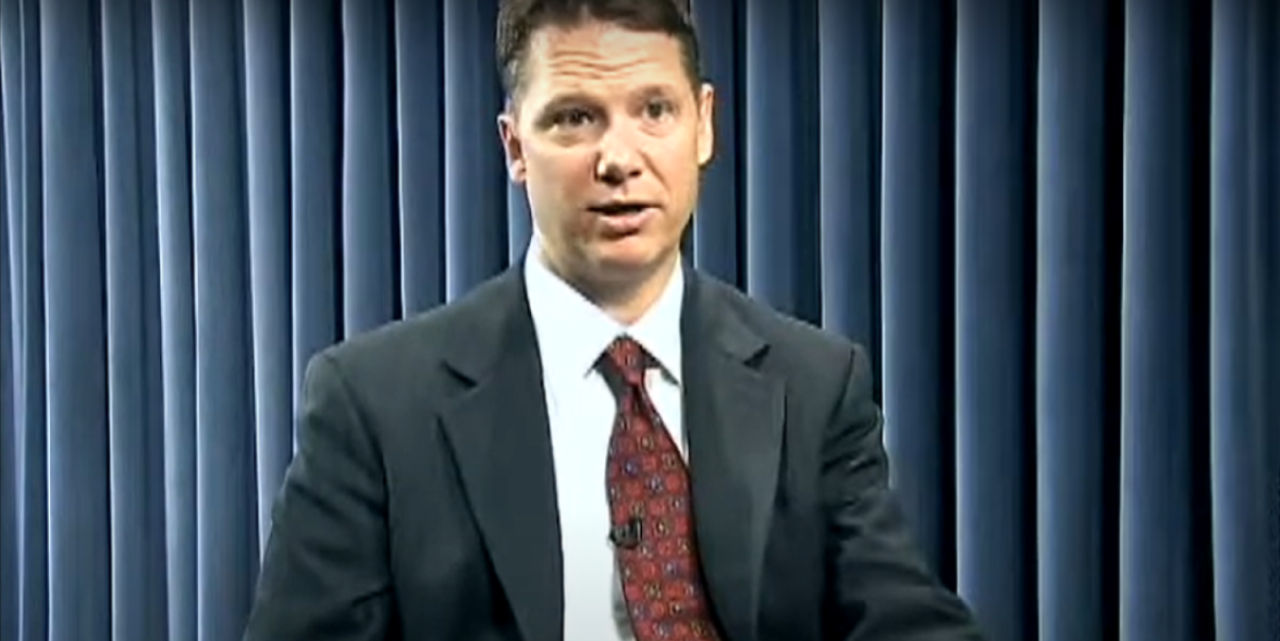Cook County and other “home rule” units of local government in Illinois are not obligated to spend transportation tax money on actual transportation projects, despite a state constitutional amendment intended to lock away transportation funding from being spent elsewhere, a state appeals panel has ruled.
In the ruling, the appellate justices said they believed the limits within the so-called Safe Roads Amendment applies only to taxes levied by the state government itself, or governed by state law.
“In sum, all of the extrinsic information that might inform us of the Amendment’s intent points to the same conclusion that struck us as the most reasonable as well,” the justices wrote.

Attorney John M. Fitzgerald
| Tabet DiVito & Rothstein
“The Amendment protects from diversion those revenues from transportation-related taxes whose expenditure is authorized by statute. The Amendment does not sequester revenues from transportation-related taxes spent by home-rule units pursuant to their independent constitutional spending power.”
The decision was handed down by a three-justice panel of the Illinois First District Appellate Court, in Chicago, on March 4. The opinion was authored by Justice David W. Ellis. Justices Nathaniel Howse and Eileen O’Neill Burke concurred in the decision.
The ruling comes as the latest steps in the first real legal test of the reach of the Safe Roads Amendment, also known as a transportation lockbox amendment, since it was added to the Illinois state constitution by voters in 2016.
In March 2018, a coalition of road construction professional and trade associations sued Cook County in County Circuit Court, accusing the county government of violating the Safe Roads Amendment by continuing to plow nearly $250 million in transportation funding into county’s Public Safety Fund. The county uses those funds to help pay for operations and projects at the Cook County Sheriff’s Office and other county offices associated with the criminal justice system.
The Safe Roads Amendment ostensibly requires the state and all units of government in Illinois to spend money collected from taxes and fees on transportation solely on transportation work and projects. The road builders argued the amendment should require the county and all Illinois local governments to dedicate the funding to roads, bridges, mass transit and real transportation projects.
The road builder associations said, by diverting the money away from transportation construction and maintenance, the county was balancing its budgets on the backs of its member workers, businesses and unions.
The complaint specifically targeted six county taxes, including four automobile-related taxes, which the complaint said the county expected to collectively bring in around $250 million annually.
Plaintiffs in the action include the Illinois Road and Transportation Builders Association; the Federation of Women Contractors; the Illinois Association of Aggregate Producers; Associated General Contractors of Illinois; Illinois Asphalt Pavement Association; Illinois Ready Mixed Concrete Association; Great Lakes Construction Association; American Council of Engineering Companies Illinois Chapter; Chicagoland Associated General Contractors; Underground Contractors Association of Illinois; and Illinois Concrete Pipe Association.
However, Cook County and other local governments in Illinois have argued the amendment can’t be read as applying to taxes raised by home rule units of government, like Cook County, which are granted special powers under the Illinois state constitution.
The county cautioned that allowing the road builders’ interpretation would not only be opposed to eh actual language of the amendment, but would open units of Illinois local governments to a six-lane freeway of lawsuits from “transportation contractors and the like with an appetite for more construction contracts who will demand a ‘line-item accounting’ of how they spend their money…,” the county wrote in a brief filed in Cook County court in 2018.
After a Cook County judge sided with the county in 2019, the road builders appealed.
The appellate justices, however, also sided with the county’s reading of the Safe Roads Amendment.
While the opening section of the Amendment may appear to sweep the county’s funds into the constitutional lockbox, later language in the Amendment contradicts that reading, the appellate justices determined.
They noted the Amendment makes no mention of home rule units of government, like Cook County, and likewise contains no mention of local transportation taxes established by ordinance. Rather, they said, the Amendment should be read to apply only to taxes and fees raised by state law – or, statutes – or governed by statute.
That would mean, the justices said, the Amendment would apply to all transportation taxes and fees levied by the state; all transportation taxes and fees charged or received by non-home rule units of local government; and some of the taxes and fees charged or received by home rule units of government.
But if the taxes and fees are created by home rule ordinance, the Amendment places no limits on how Cook County, the city of Chicago, or any other home rule city, village or county can spend that money, the justices ruled.
They said that interpretation was backed by their reading of debate conducted by state lawmakers as they considered the Amendment, before sending it on to voters.
They particularly pointed to an exchange between then-state Sen. Kwame Raoul, D-Chicago, and then-state Sen. William Haine, D-Alton, one of the leading sponsors of the Safe Roads Amendment.
In that exchange, the justices noted, Raoul specifically asked Haine if the drafters of the Amendment believed the Amendment could be used to force Cook County to reroute the six taxes at the heart of the road builders’ lawsuit.
Haine said they did not believe that to be the case, as the Amendment was not intended to supersede home rule authority to spend such funds.
“Senator Raoul mentioned nearly every single tax that is the subject of the complaint here, asking whether the Amendment prevented the County from spending those tax revenues as it deemed appropriate—that is, for public safety and not transportation—and the sponsor’s answer was clear,” Justice Ellis wrote. “The Amendment did not preempt Cook County’s constitutional home-rule authority to spend those revenues as it sees fit.
“It is hard to get more on-the-nose than that.”
The justices also rejected the road builders' contention that ruling for Cook County would render the Safe Roads Amendment "toothless," as the decision could be read as a roadmap for allowing the state and local governments to legislate their way around the transportation funding lockbox.
"The point of the Amendment is to sequester transportation tax revenues from the moment they are generated until the moment they are spent—on transportation purposes," Ellis wrote. Broad language contained in the Amendment's subsection (d) "would follow that money wherever it went and thwart any legislative attempt to divert those funds to other spending purposes. We fail to see how the General Assembly could “legislate around” the restrictions in the Amendment.
"We thus find no merit to the claim that our interpretation would render the Amendment functionally impotent."
The road builders coalition has been represented by attorneys Gino L. DiVito, John M. Fitzgerald and Amanda N. Catalano, of the firm of Tabet DiVito & Rothstein LLC, of Chicago.
The county has been represented by the office of Cook County State’s Attorney Kim Foxx, including assistant state’s attorneys Cathy McNeil Stein, Martha Victoria Jimenez and James Beligratis.
